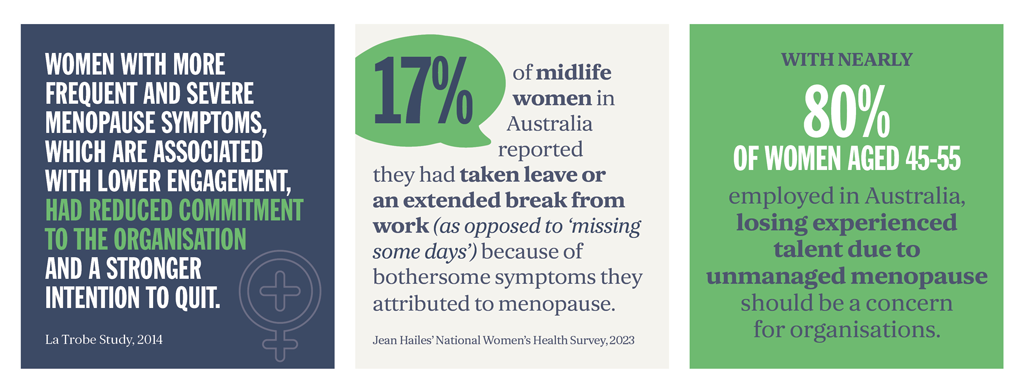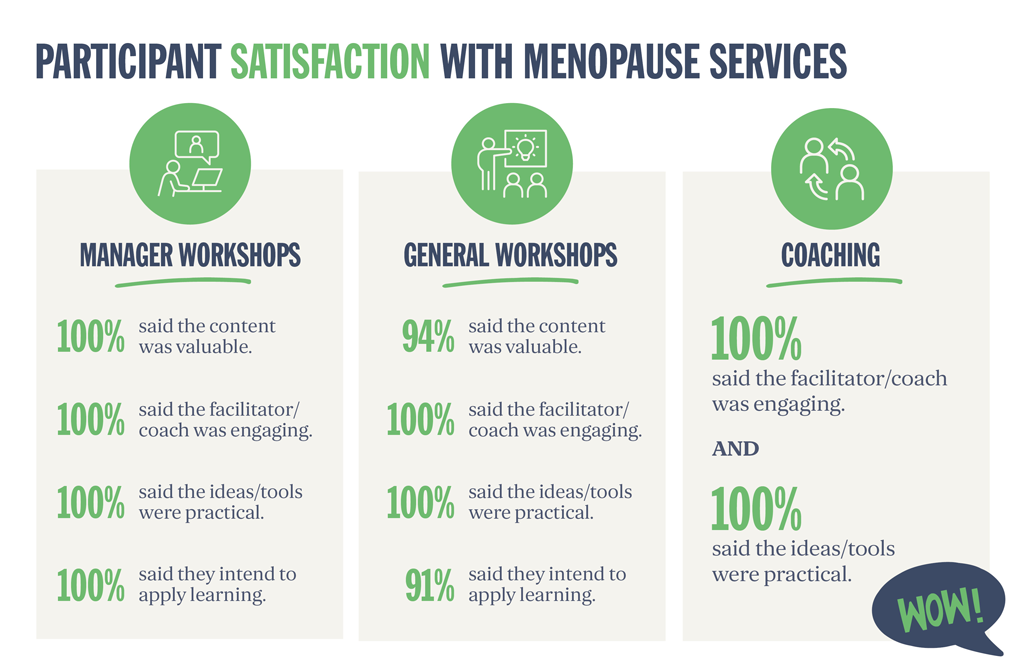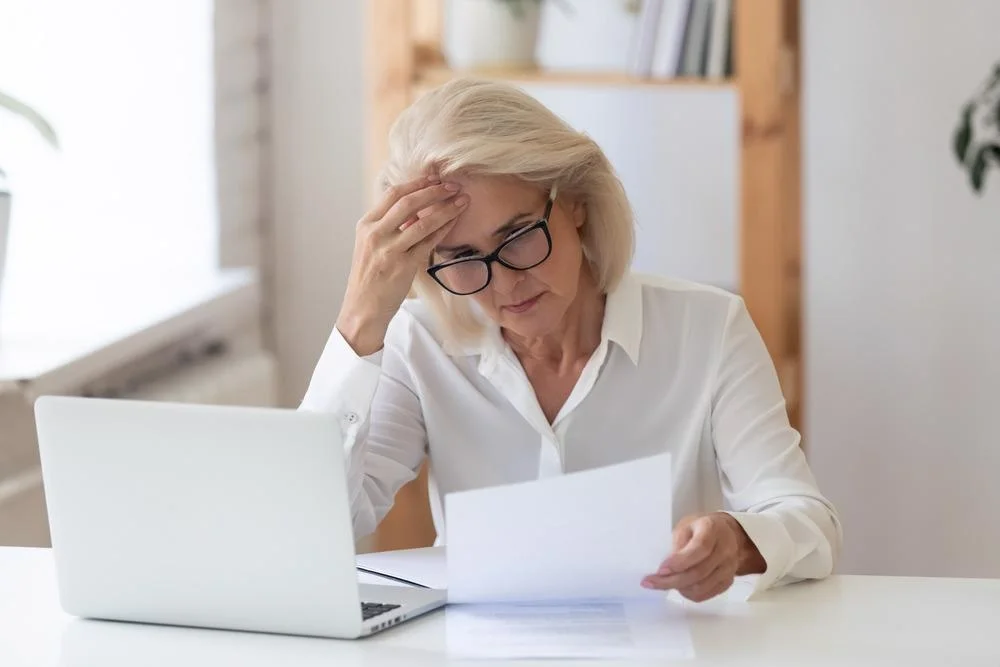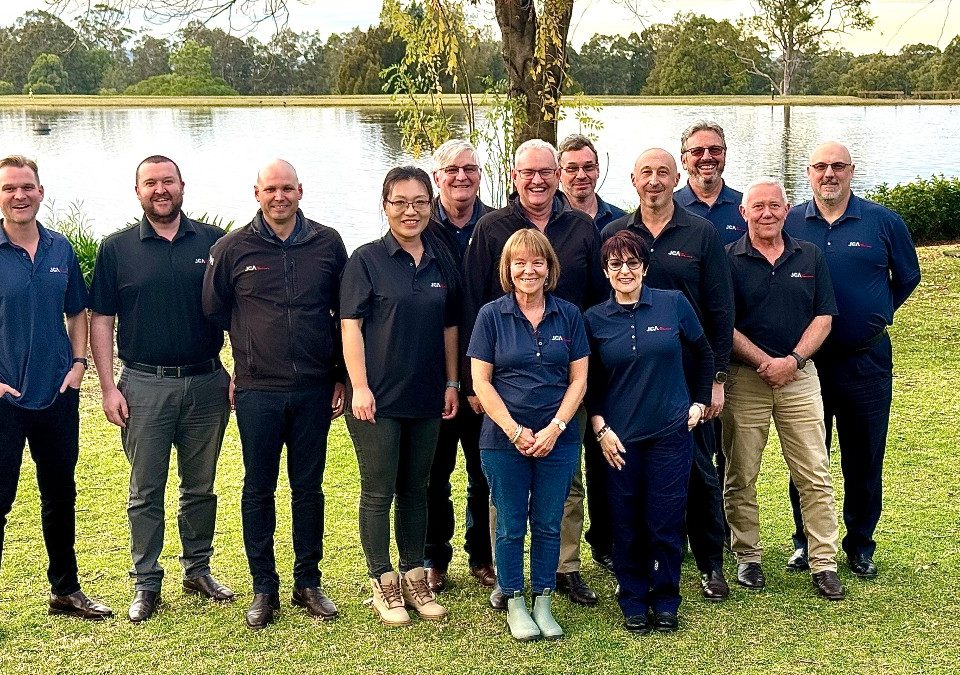The Hidden Impact of Menopause on Women
A Guide For Leaders
Organisations have been slow to understand the realities of the menopause transition for women in the workplace.
It was only in 2023 that the word ‘perimenopause’ was first spoken in federal parliament by Senator Larissa Waters. This year, journalist Imogen Crump went viral for breaking off mid-sentence on live TV to apologise for a hot flush – a first for national television. These watershed moments highlight both how far we’ve come and how far we still have to go in addressing this crucial workplace issue.
Against this backdrop of growing awareness, a trend has emerged: women are retiring approximately five years earlier than men, with a median retirement age of 55.8 years compared to 60.3 years for men. While financial factors are often the primary driver, there’s a significant yet under-discussed reason: menopause.
Women in Australia experience higher rates of financial insecurity than men, with significantly lower superannuation balances on average and now represent the fastest-growing demographic among the homeless population.
“Menopause is a significant life transition for women everywhere,” says Thea O’Connor, wellbeing and productivity advisor and coach. “When we equip women with education about what to expect, and managers with the tools to support those who are struggling with symptoms, we can shift the dial on women’s career trajectories and financial wellbeing into the future.”
The intersection of this natural transition at a time when women are at a pivotal time in their careers presents both challenges and opportunities for Australian workplaces.
The Menopausal Transition: A Workplace Challenge
Menopause typically occurs between ages 45-55, coinciding with peak career years. Research indicates that approximately 80% of women experience menopausal symptoms, with 25% reporting significant impacts on their daily lives. These symptoms can include:
- Difficulty concentrating and memory issues
- Fatigue and sleep disturbances
- Hot flushes and sweating
- Anxiety and mood changes
- Physical discomfort
The Numbers
Recent data paints a clear picture of the challenge

Legal Framework and Considerations
Recent legal cases have highlighted the importance of addressing menopause in the workplace:
- Anti-Discrimination Legislation
- Sex Discrimination Act 1984 (Cth)
- Age Discrimination Act 2004 (Cth)
- Fair Work Act 2009 (Cth)
- Relevant Case Law
- Richter v. Corporation X (2022): Awarded $175,000 for failure to make reasonable adjustments
- Thompson v. Company Y (2021): Established menopause as a protected characteristic under sex discrimination laws
- Work Health and Safety Obligations
- Model WHS Laws require employers to manage health and safety risks
- Duty of care extends to managing menopause-related risks
- Requirement for consultation with workers about health and safety matters
The New Approach To Supporting Menopause In The Workplace
Transitioning Well was engaged by the Victorian government to deliver a pilot program on menopause support to its employees and managers. There was high engagement in both the coaching sand workshops, indicating a high demand for a program of this nature.
The coaching program was delivered by a national team of registered psychologists. The program emphasised confidentiality and comfort, creating a safe space for participants to discuss challenges, develop strategies, and leverage the strengths associated with menopause.
The workshops were delivered by our partner, Thea O’Connor and tailored to both a leader and employee audience.
Program Scope:
- 64 employees received individual coaching
- 49 managers underwent specialised training
- 93 total program participants

Key Results:
- High engagement rates across all program components
- Significant increase in manager confidence
- Positive participant feedback
- Creation of sustainable support systems
Feedback:
“This program should be offered again in my workplace. I would encourage all the women I know in my age range to participate.” – Coaching Participant
“It is fantastic to raise awareness around how going through the menopause transition can impact women and how they work.” – Manager Workshop Participant
Creating Menopause-Friendly Workplaces
Practical Solutions for HR Professionals
Policy Development
- Create specific menopause workplace policies
- Include menopause in existing health and wellbeing frameworks
- Develop flexible working arrangements
- Establish clear accommodation request procedures
Workplace Adjustments
- Temperature control options
- Access to quiet spaces
- Adequate bathroom facilities
- Flexible break times
- Remote work options
- Adjustable uniforms and dress codes
Training and Education
- Manager awareness training
- Employee resource groups
- Health and wellbeing workshops
- Open dialogue initiatives
- Peer support networks
- Online learning modules
Support Systems
- Employee assistance programs
- Mentoring programs
- Return-to-work support
- Occupational health referrals
- EAP and mental health support
Action Steps for HR Professionals
- Audit current policies and support systems
- Develop a menopause workplace policy
- Implement training programs for managers
- Create open channels for feedback
- Monitor and measure outcomes
- Regular policy review and updates
As Australia’s workforce continues to age, addressing menopause-related early retirement isn’t just about equality—it’s about business sustainability. Leaders and HR professionals are uniquely positioned to create supportive environments that enable women to continue their careers through menopause and beyond.
To find out more about how Transitioning Well can help your organisation, see our Learning Catalogue.



